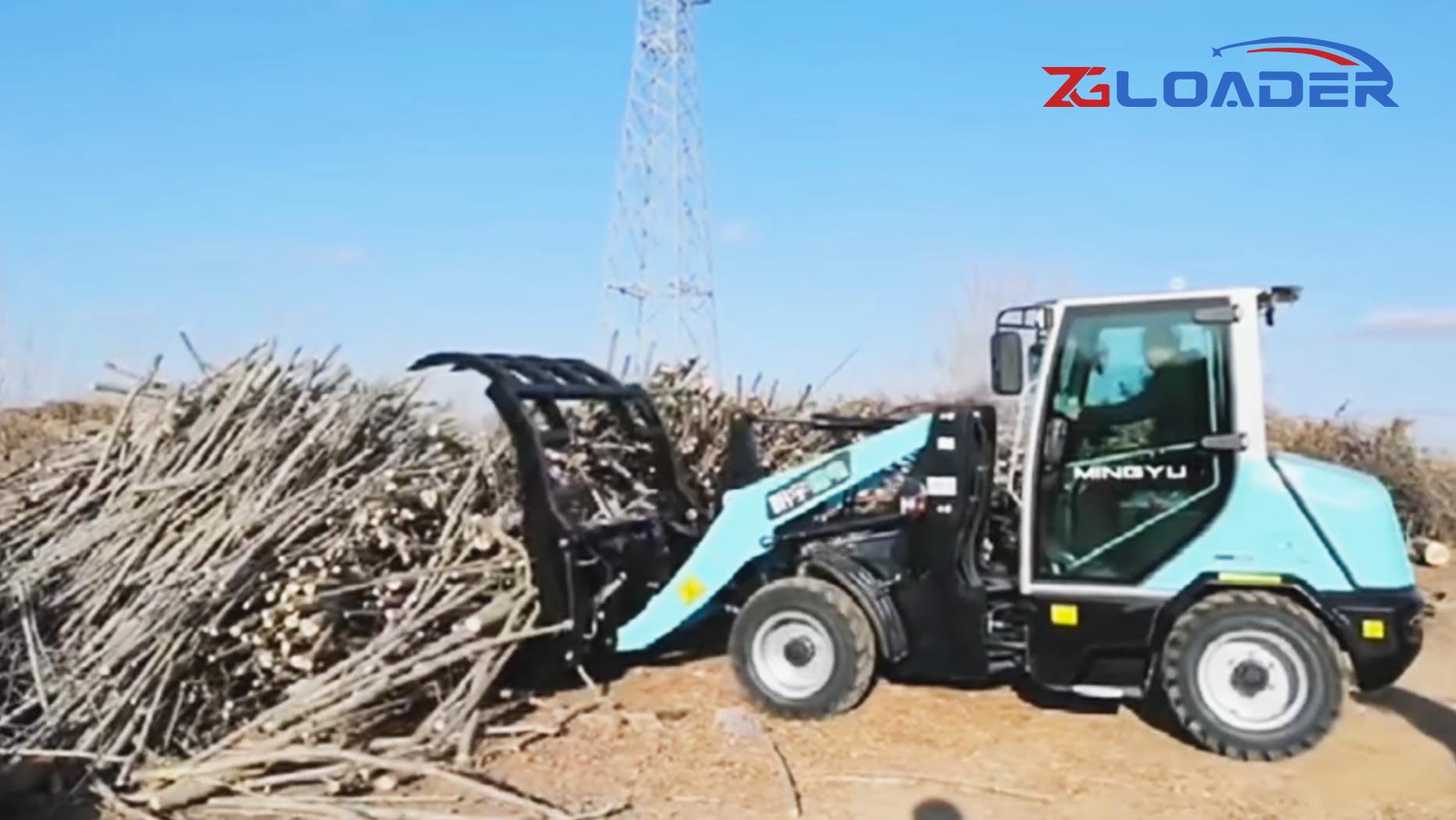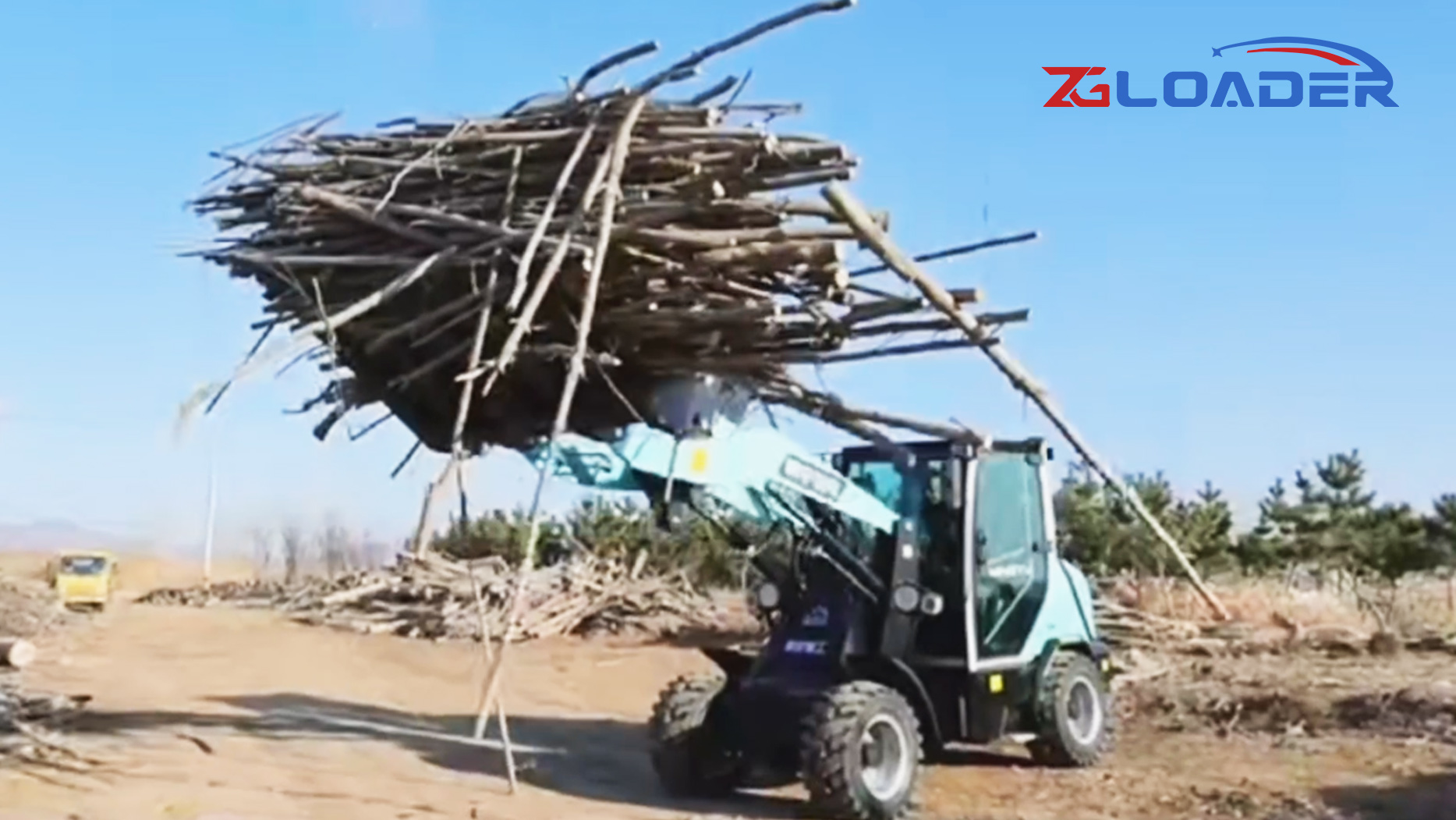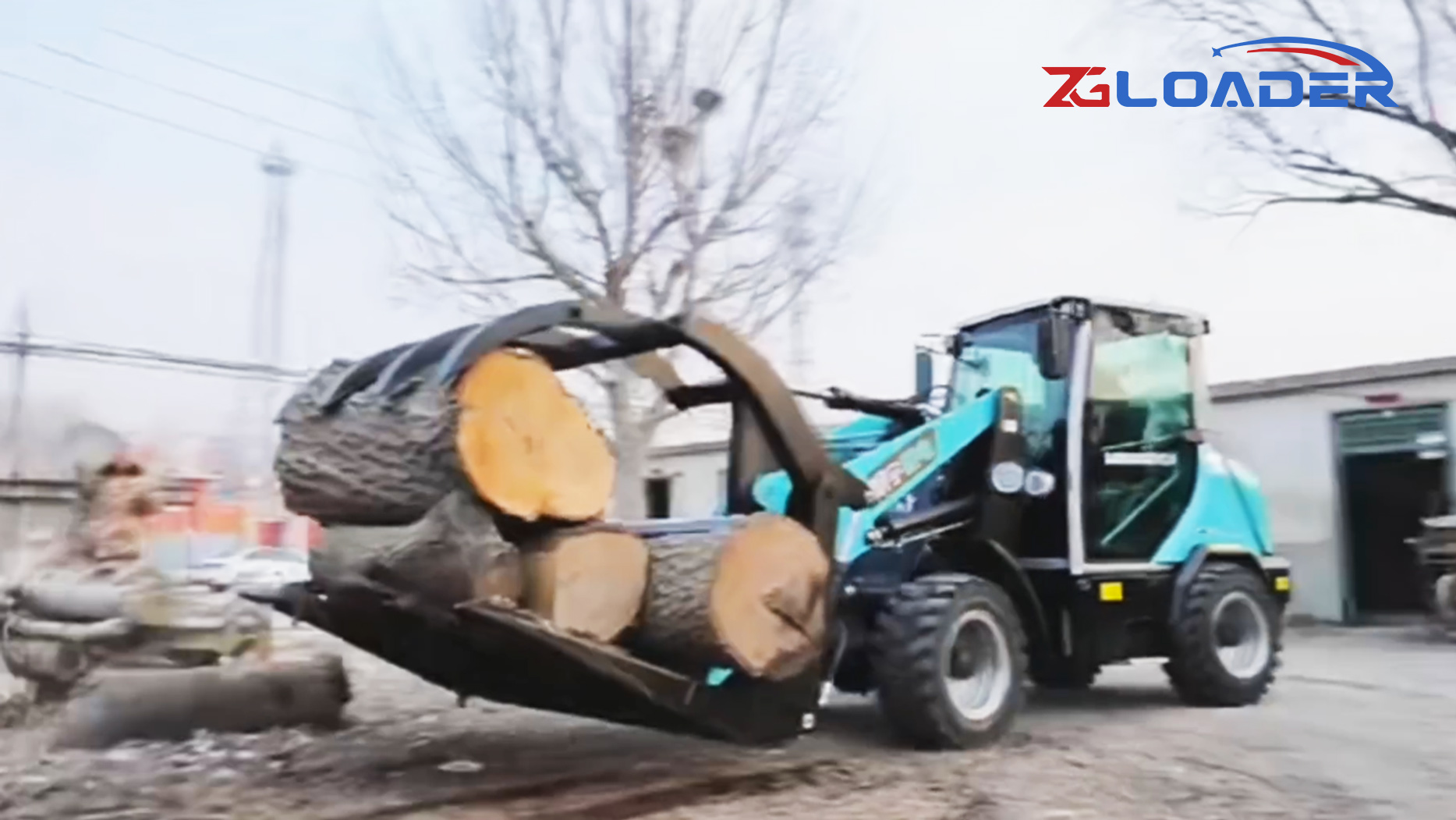Wheel loaders are versatile and powerful pieces of construction equipment, easily recognizable by their large front bucket and rubber tires. Their adaptability makes them a common sight across a wide range of industries, performing tasks from material handling and earthmoving to cleanup and recycling. This article will explore the diverse sectors that rely on wheel loaders and the specific applications they serve.
Construction: The Foundation of Wheel Loader Usage
The construction industry is arguably the largest consumer of wheel loaders. Their versatility shines in various phases of construction projects, from site preparation to final landscaping. Common uses include:
Material Handling: Wheel loaders efficiently move aggregates like gravel, sand, and crushed stone. They load these materials into trucks for transport, stockpile them on site, or feed them into crushers or screening plants. Their maneuverability allows them to work in confined spaces, making them ideal for urban construction sites.
Earthmoving: While not as specialized as excavators, wheel loaders can handle light earthmoving tasks such as digging, backfilling, and leveling. Smaller models are often used for landscaping and site cleanup, while larger loaders tackle more substantial earthmoving operations.
Demolition: Equipped with specialized attachments like grapples or buckets with teeth, wheel loaders can assist in demolition projects. They can clear debris, sort recyclable materials, and load demolition waste into trucks.
Site Preparation: Before construction begins, wheel loaders play a crucial role in preparing the site. They clear vegetation, remove topsoil, and level the ground, creating a suitable foundation for building.
Mining and Quarrying: Moving Mountains of Material
The mining and quarrying industries rely heavily on wheel loaders for their bulk material handling capabilities. In these demanding environments, wheel loaders are often used for:
Loading Haul Trucks: Large wheel loaders with massive buckets are essential for loading blasted rock, ore, and other mined materials into haul trucks for transport to processing plants. Their speed and efficiency are critical for maintaining productivity in large-scale mining operations.
Stockpiling and Reclaiming: Wheel loaders build and maintain stockpiles of raw materials. They also reclaim materials from stockpiles, feeding them into crushers, conveyors, or other processing equipment.
Cleanup and Maintenance: In mines and quarries, wheel loaders are used for general cleanup tasks, removing debris, and maintaining haul roads. They also assist in moving equipment and supplies around the site.
Agriculture: A Versatile Farmhand
Wheel loaders have found a niche in modern agriculture, offering a range of benefits to farmers. Their adaptability and ability to handle various materials make them valuable tools for:
Material Handling: On farms, wheel loaders handle everything from grain and silage to fertilizer and manure. They load these materials into trucks, spreaders, or storage facilities.
Feeding Livestock: Wheel loaders equipped with specialized buckets or forks can be used to distribute feed to livestock. Their maneuverability allows them to navigate tight spaces in barns and feedlots.
Manure Management: Wheel loaders play a crucial role in manure management, loading manure into spreaders or storage tanks. This helps farmers maintain hygiene and soil fertility.
General Farm Tasks: Wheel loaders can be used for a variety of other farm tasks, such as clearing land, moving hay bales, and loading equipment.
Waste Management and Recycling: Sorting and Moving Debris
The waste management and recycling industry utilizes wheel loaders extensively for material handling and processing. Their ability to handle diverse materials makes them well-suited for:
Sorting and Loading: In recycling facilities, wheel loaders sort and load recyclable materials such as paper, plastic, and metal. They feed these materials into processing equipment or load them into trucks for transport.
Moving Waste: At landfills, wheel loaders move and compact waste, maximizing the use of available space. They also load waste into trucks for transport to incinerators or other disposal facilities.
Compost Turning: In composting operations, wheel loaders turn and aerate compost piles, promoting decomposition and creating valuable fertilizer.
Forestry and Logging: Handling Timber and Debris
The forestry and logging industries utilize wheel loaders for various tasks, particularly in log yards and processing facilities:
Log Handling: Equipped with grapples or forks, wheel loaders move and sort logs, loading them onto trucks or feeding them into sawmills. Their maneuverability is essential for working in confined log yards.
Debris Removal: Wheel loaders clear logging debris, such as branches and stumps, from the forest floor, reducing fire hazards and preparing the land for reforestation.
Material Handling: In sawmills and other wood processing facilities, wheel loaders handle wood chips, sawdust, and other byproducts.
Material Handling and Logistics: Moving Goods Efficiently
Beyond the core industries mentioned above, wheel loaders are also employed in various material handling and logistics operations:
Ports and Docks: Wheel loaders move cargo containers, pallets, and other goods at ports and docks, facilitating the loading and unloading of ships and trucks.
Warehouses and Distribution Centers: In large warehouses and distribution centers, wheel loaders handle bulk materials, loading and unloading trucks and moving goods within the facility.
Rail Yards: Wheel loaders are used in rail yards to load and unload rail cars, transferring goods between trains and trucks.
Other Industries:
The versatility of wheel loaders extends beyond these primary industries. They also find applications in:
Snow Removal: Equipped with snow buckets or plows, wheel loaders clear snow from roads, parking lots, and other areas.
Landscaping: Smaller wheel loaders are used for landscaping projects, moving soil, mulch, and other materials.
Road Construction and Maintenance: Wheel loaders assist in road construction and maintenance, handling materials and clearing debris.
Conclusion:
The widespread use of wheel loaders across such a diverse range of industries is a testament to their adaptability and efficiency. Their ability to handle various materials, perform multiple tasks, and work in confined spaces makes them invaluable pieces of equipment. As technology advances, wheel loaders continue to evolve, with improvements in fuel efficiency, operator comfort, and automation, further solidifying their place as essential tools in numerous sectors of the economy. From construction and mining to agriculture and waste management, wheel loaders play a crucial role in moving materials, building infrastructure, and supporting various industrial processes. Their robust design and versatile functionality ensure that wheel loaders will remain a vital part of the industrial landscape for years to come.
Post time:Feb.17.2025



